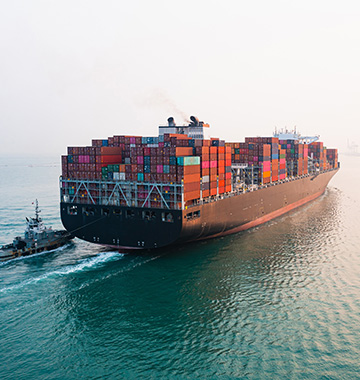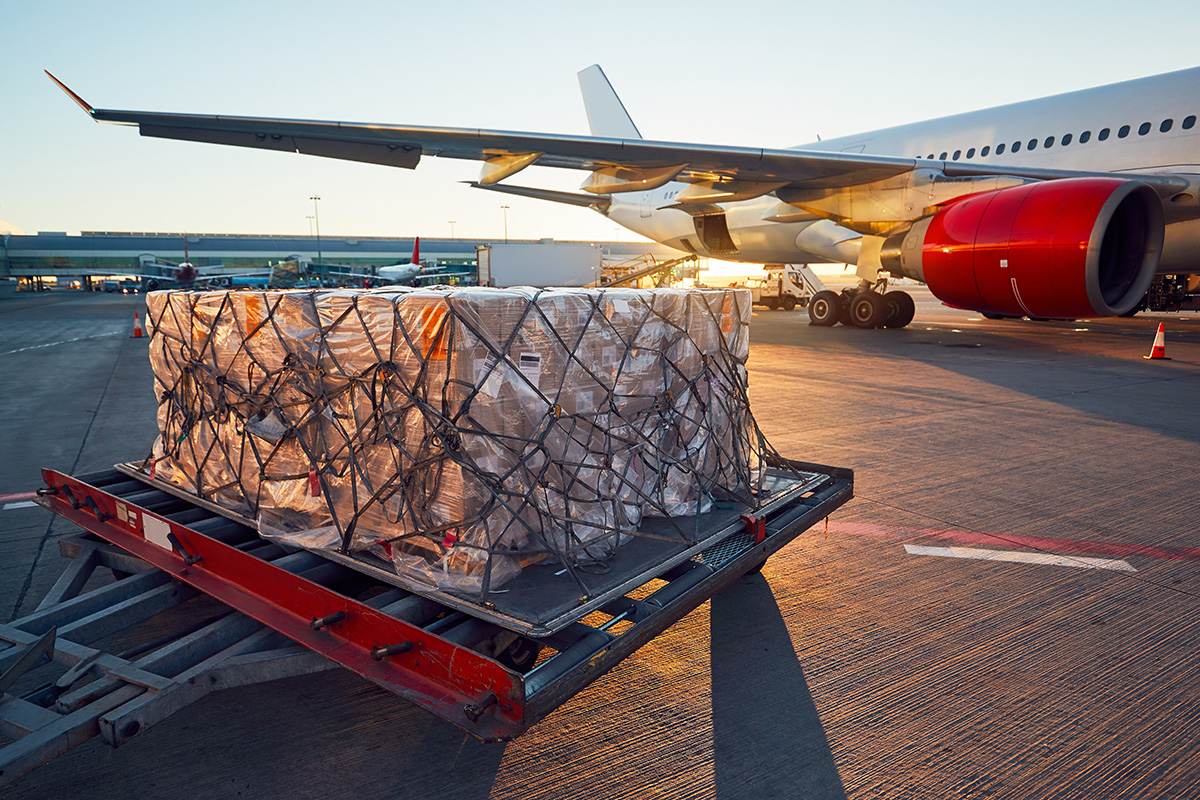How can you protect your business as external events impact the transportation of goods and services?
Get A Trade Credit Insurance Quote
Our international team of trade experts is here to help. Contact us to learn more about our coverage options for the Transportation Industry or request a free, no obligation quote that includes credit reports for your largest trade partners.
Transportation Industry

The transportation industry in the United States is a cornerstone of the economy, facilitating the movement of goods and people across vast distances. It encompasses various modes, including road, rail, air, and maritime transport, each playing a vital role in connecting industries and communities. The industry is valued at over $1.36 trillion, with trucking alone responsible for 72.5% of freight movement. More than 10.68 million Americans work in transportation and warehousing. The U.S. boasts over 4 million miles of public roads, extensive rail networks, and major ports that handle billions of dollars in daily freight shipments.
Transportation accounts for 27% of the U.S.’s greenhouse gas emissions. Global events and infrastructure vulnerabilities often lead to delays and increased costs. The industry is gradually adopting electric vehicles and alternative fuels to reduce its carbon footprint. This transition to sustainable practices, including the adoption of electric vehicles and alternative fuels, is reshaping the sector.

Consumer spending on transportation services, such as public transit and air travel, has been volatile, especially post-pandemic. They are prioritizing services, such as spending on travel, over other goods. For instance, spending on public transportation rose sharply in 2021 but remained below pre-pandemic levels.
The rise of e-commerce has increased demand for freight and last-mile delivery services, but it also puts pressure on logistics companies to meet customer expectations for speed and cost-efficiency. The transportation sector is highly sensitive to economic cycles. During downturns, reduced consumer spending on goods and services directly impacts freight volumes and passenger travel.

Fuel costs remain a significant challenge for the transportation industry, especially as jet fuel prices are closely tied to volatile oil markets. Fluctuations in fuel prices create uncertainty, forcing companies to adjust pricing strategies and operational budgets frequently. The push for alternative fuels and electric vehicles adds upfront costs for fleet upgrades, although it promises long-term savings and environmental benefits.

Economic risks and weak demand pose major challenges for the shipping industry. A slower recovery in global trade threatens growth, as shipping companies struggle to balance supply with demand. Overcapacity and weak trade volumes are putting pressure on freight rates and profitability. If trade continues to lag, the industry may face prolonged financial strain, forcing companies to downsize fleets or cut costs to stay competitive.

Low unemployment rates give some support to consumer demand, but amplifies wage pressures and labor supply issues. Ongoing staff shortages and labor disputes—will likely limit sectoral activity and growth in the short to medium run while potentially disrupting service delivery and adding upwards pressure on employment costs.
The trucking industry alone faced a shortage of approximately 80,000 drivers in 2022, a number projected to rise to over 160,000 by 2031. This is driven by an aging workforce, high turnover rates, and a lack of younger entrants into the profession. Poor working conditions, low wages, and long hours contribute to high turnover, particularly in long-haul trucking. Warehousing and logistics sectors also report significant labor shortages, with 37% of organizations experiencing disruptions due to understaffing.

Escalating conflicts could drive up inflation, oil prices, disrupt global trade, and weaken travel demand. Tariffs and trade wars, such as those between the U.S. and China, have increased shipping costs and forced companies to reconfigure supply chains. Conflicts in key regions, like the South China Sea and the Strait of Hormuz, disrupt shipping routes and increase costs. Sanctions on countries like Iran and Venezuela impact global oil supply, affecting fuel costs and transportation operations.

The transportation sector is under increasing scrutiny to reduce greenhouse gas emissions and carbon costs are stepping up. The transportation sector is under scrutiny for its carbon emissions, which account for 27% of U.S. greenhouse gas emissions. Companies face increasing regulatory and public pressure to adopt cleaner technologies. Workforce health and safety, as well as equitable employment practices, are becoming critical ESG metrics. Transparency and compliance with ESG standards are essential for maintaining investor confidence and meeting regulatory requirements.
Curious About Pricing?
Atradius is here to help. Contact us to learn more about our coverage options or request a free, no obligation quote that includes credit reports for your largest trade partners.
Benefits to Credit Insurance
Trade credit insurance is a risk management tool that can help protect your company’s commercial accounts receivable from the devastating effects of loss caused by a bankruptcy or protracted default of your buyers. No company wants to face the unknown. At Atradius, we give our clients peace of mind knowing that their policy protects them from a customer’s sudden inability to pay. Especially in an industry that must adhere to high-cost environmental regulations, trade credit insurance can help with cash flow and to ensure companies are financially stable.
Get Your Questions Answered or Request a Quote
Atradius is here to help. Contact us to learn more about our coverage options or request a free, no obligation quote that includes credit reports for your largest trade partners.



